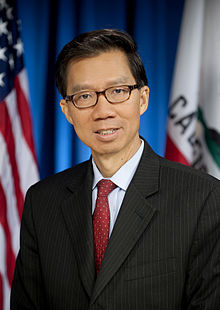
Here at Ars, we're always on the lookout for wacky, tech-focused legislation. And we've found one bill that is certain to make our Top 10 list.

The new proposal bars the online publication of a "false or deceptive statement designed to influence the vote." Bye-bye online news. On the flip side, this legislation would probably outlaw lawmakers' and candidates' online speech, too.
The bill is proposed by California Assemblyman Edwin "Ed" Chau, a Democrat representing a section of Southern California. The proposal, which is likely unconstitutional on its face, was supposed to have a committee hearing Tuesday afternoon, but it was pulled at the 11th hour.
The measure does have a laudable goal, however. It's designed to combat the so-called "fake news" that filled the 2016 election season. Intentions aside, the Electronic Frontier Foundation on Monday began campaigning against the proposal.
"At a time when political leaders are promoting 'alternative facts' and branding unflattering reporting as 'fake news,' we don’t think it’s a good idea to give the government more power to punish speech," the EFF said.
Here's the main part of the legislation that has the privacy group worried:
SEC. 2. Section 18320.5 is added to the Elections Code, to read:
18320.5. It is unlawful for a person to knowingly and willingly make, publish or circulate on an Internet Web site, or cause to be made, published, or circulated in any writing posted on an Internet Web site, a false or deceptive statement designed to influence the vote on either of the following:
(a) Any issue submitted to voters at an election.
(b) Any candidate for election to public office.
Chau did not immediately respond for comment, but the EFF said that if the bill became law, it would create "electoral chaos on an epic scale."
Political operatives could file complaints at the slightest hint of hyperbole or smallest misstatement of fact by a candidate. Prosecutors could launch politically motivated investigations. The bill doesn't even exempt journalism, leaving bloggers who want to quote false statements before debunking them in a legal limbo. Even satirical websites, such as The Onion, could come under fire for posting technically false information. You could even get in trouble for retweeting something inaccurate that someone else said.
We suspect that this will be the last word on the measure and that the Assembly Privacy and Consumer Protection Committee, which Chau chairs, will let this bill limp off into the ether.
reader comments
165